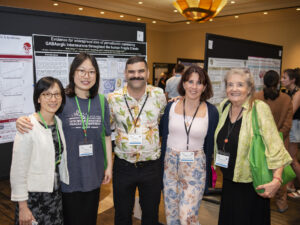About the Study
Who can participate?
What will happen in the study?
- Medical history and behavioral testing (approx. 1.5 hours)
- PET-MRI (approx. 2 hours)
- Magnetoencephalography (approx. 1 hour).
The study started on March 15, 2018, and ends by June 30, 2020. The IRB approval number is 2017P001039.
Will I or my child be paid to complete this study?
Travel/time subsidy: compensation up to $350 for participation.
Interested in Participating?
If you are interested, please contact:
Maria Mody, PhD
maria@nmr.mgh.harvard.edu
(617) 726-6913


